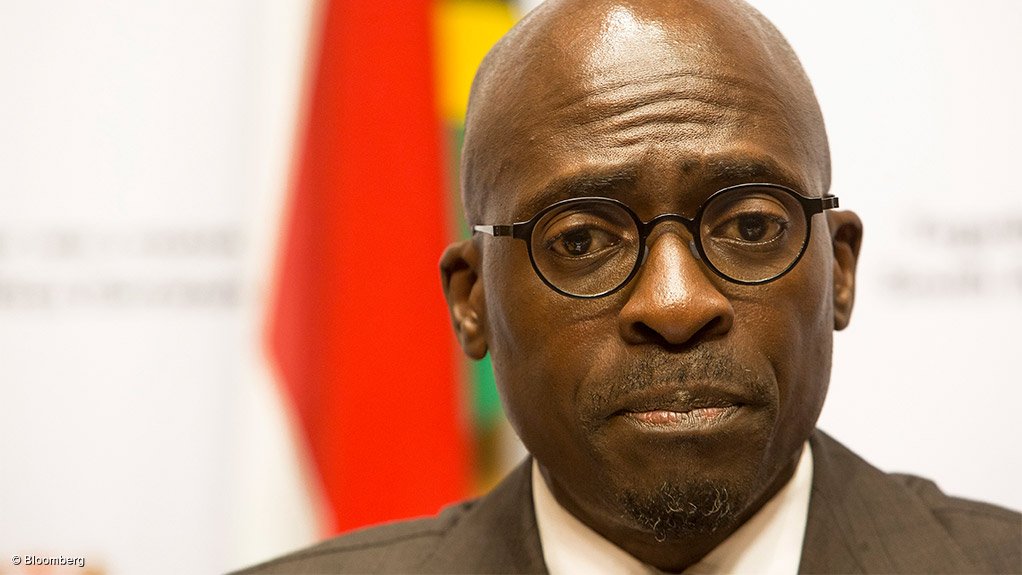Mr. Angel Gurria, OECD Secretary-General, the esteemed delegation of the Secretary-General, top leadership of the National Treasury, ladies and gentlemen.
Good morning. I welcome you all to this event in officially launching the 2017 Economic Survey of South Africa.
I particularly extend my sincerest gratitude to the Secretary-General and the OECD Mission, specifically for your efforts in conducting this assessment of South Africa’s economy. It is without doubt that South Africa is currently faced with difficult economic conditions that we are actively engaging with and responding to. The work initially undertaken by the OECD in collaboration with the government of South Africa is highly commendable.
South Africa engages with the OECD through the Enhanced Engagement Programme and is a key partner to the OECD. The SA-OECD cooperation is forward-looking and mutually beneficial, hence the commitment to policy exchange and practice dialogue. The release of Economic Surveys by the OECD forms part of knowledge exchange and best practices. The OECD is positioned as a global think tank on policy advice due to its comparative benchmarking practices with other countries.
It is worth highlighting some of the interconnections between what the government is doing together with some key recommendations of the survey. The Economic Survey is launched at an opportune time in which South Africa is addressing the challenges of unemployment and inclusive growth.
Growth has disappointed in the last few years. Weak consumer demand and persistently falling business investment have become a challenge worsened by slow growth of the global economy. In this context, reviving economic growth is crucial to increasing well-being, job creation and inclusivity.
The government has developed the 14-point Action Plan which has strong support from the President and Cabinet to address the challenges of slow domestic growth.
The Action Plan aims to accelerate progress, coordinate government efforts and act as a mechanism for accountability; and it has realistic, achievable objectives set against realistic and firm timelines. In some way, the Action Plan makes a genuine attempt to respond to some of the challenges raised in the OECD Economic Survey of South Africa, to provide political and policy certainty, raise consumer and business confidence, reignite growth in the economy and thus begin the path of raising our growth levels faster, bigger, inclusively and on sustainable basis.
Ladies and gentlemen, we agree with the observations made in the 2017 Economic Survey that, among others, boosting entrepreneurship and growing small businesses will contribute to creating jobs. We also agree that, notwithstanding the above, entrepreneurship in South Africa is low compared to other emerging economies. Steps have been taken to ease starting a business and the Department of Small Business Development is currently addressing the red tape associated with starting a small business through simplification of procedures.
The government is in the process of finalising a complementary government fund aimed at financing SMMEs in start-up phase. We further agree with the observation that the quality of the education system and lack of work experience contribute to gaps in entrepreneurial skills and, in that regard, government policies will provide more support for entrepreneurs and small businesses.
We have identified a significant role that could be played by State-Owned Companies (SOCs) in advancing the objectives of employment and inclusive growth, particularly targeting micro enterprises and black owned small businesses.
For example, from April 2017, 30% of every large contract must be, where feasible, sub-contracted to SMMEs. We acknowledge that more needs to be done with regards to effecting rigorous monitoring and evaluation to ensure robust implementation of this imperative. We believe that this forms part of the developmental mandate of the State Owned Companies and will be strongly integrated in their Corporate Plans, monitored and evaluated through annual performance plans and implementation.
The recent digitisation of procurement processes means that these changes can be monitored closely. Lastly, we believe that further reforms in the Telecommunications sector would be supportive of entrepreneurs and small businesses through reduction of costs to do business.
Government is taking actions to issue policy directives mandating ICASA to commence the licensing processes and we would like to complete the spectrum licensing process by the end 2018.
Another key initiative is to direct the Competition Commission to investigate data prices. We are also taking steps to commence with the roll-out of the broadband programme. These would further reduce the cost of doing business in line with our efforts to grow SMMEs.
Ladies and gentlemen, government recognises that the sustainable South African economic growth is intricately linked to the growth of the SADC region. Slow growth and a rise in unemployment contribute to a decline in consumer demand.
It is in this context that we agree with the observations made in the Economic Survey that regional integration offers substantial opportunities for South Africa and that more efforts should be directed in the implementation of existing SADC protocols and agreements. In this regard reducing non-tariff barriers by improving customs procedures and simplifying rules of origin would strengthen intra- regional trade in SADC.
It is important for South Africa to play a leadership role in demonstrating the benefits of regional integration. Intra-trade in the SADC region remains constrained by the infrastructure bottlenecks. In this regard, we are working with the Multilateral Development Banks for co-financing of the cross-border infrastructure. South Africa prioritizes addressing the challenges associated with intra-SADC trade through the implementation of the industrialisation plans and strategies.
For example, the South African government in partnership with the SADC Secretariat and the Southern African Business Forum are co-hosting the SADC industrialisation week from 31 July to 4 August 2017 in Johannesburg. This SADC industrialisation week seeks to address all the issues surrounding intra-SADC-trade.
In conclusion, we commend the OECD for its partnership with South Africa and look forward to the successful completion of the Secretary-General’s visit.
I thank you.
EMAIL THIS ARTICLE SAVE THIS ARTICLE ARTICLE ENQUIRY
To subscribe email subscriptions@creamermedia.co.za or click here
To advertise email advertising@creamermedia.co.za or click here











